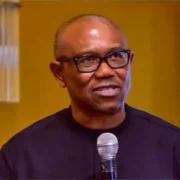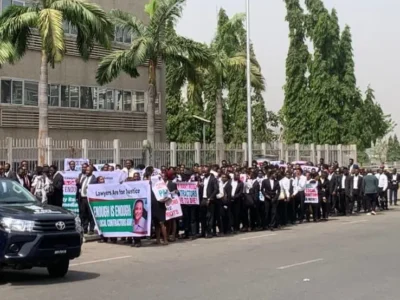GENEVA — More than 720,000 people die by suicide each year, while millions more attempt it, the World Health Organisation (WHO) has revealed, urging governments and communities worldwide to challenge stigma, break harmful myths, and foster compassionate conversations around mental health.
Speaking on World Suicide Prevention Day, marked every September 10, WHO Director-General Dr. Tedros Ghebreyesus stressed the devastating ripple effect of each life lost.
“Each life lost leaves a profound impact on families, friends, colleagues, and entire communities,” he said. “We must move from silence to openness, from stigma to empathy, and from neglect to support.”
Suicide affects all age groups but remains the third leading cause of death among 15–29-year-olds globally, according to WHO’s latest data from 2021.
The report also showed stark regional disparities. In 2021, the global suicide rate stood at 8.9 per 100,000 people. Africa recorded the highest regional average at 11.5, while Europe and Southeast Asia followed closely with 10.1 per 100,000. Nearly three-quarters of global suicides occurred in low- and middle-income countries.
WHO linked suicide to mental health conditions such as depression, alcohol use disorders, and previous suicide attempts, especially in high-income nations. However, many suicides in poorer regions occur impulsively during crises triggered by financial hardship, relationship breakdowns, chronic illness, violence, or displacement. Vulnerable groups such as refugees, migrants, indigenous peoples, LGBTI individuals, and prisoners are at particularly high risk.
Despite the scale of the crisis, mental health spending remains critically low. WHO’s 2024 Mental Health Atlas revealed that median government expenditure on mental health has stagnated at just two per cent of total health budgets since 2017. The gap between rich and poor nations is glaring — with high-income countries spending up to $65 per person compared to as little as $0.04 in low-income nations.
“Shifting the narrative on suicide also means driving systemic change, where governments prioritise and invest in quality mental health care,” Tedros emphasized.
As part of its LIVE LIFE suicide prevention initiative, WHO recommends reducing access to means of suicide such as pesticides, firearms, and certain medications; training the media for responsible reporting; fostering socio-emotional skills among adolescents; and ensuring early identification, treatment, and follow-up for people at risk.
The health body reaffirmed that mental health is a universal human right, calling for urgent global action to ensure support reaches those who need it most.




















Comments